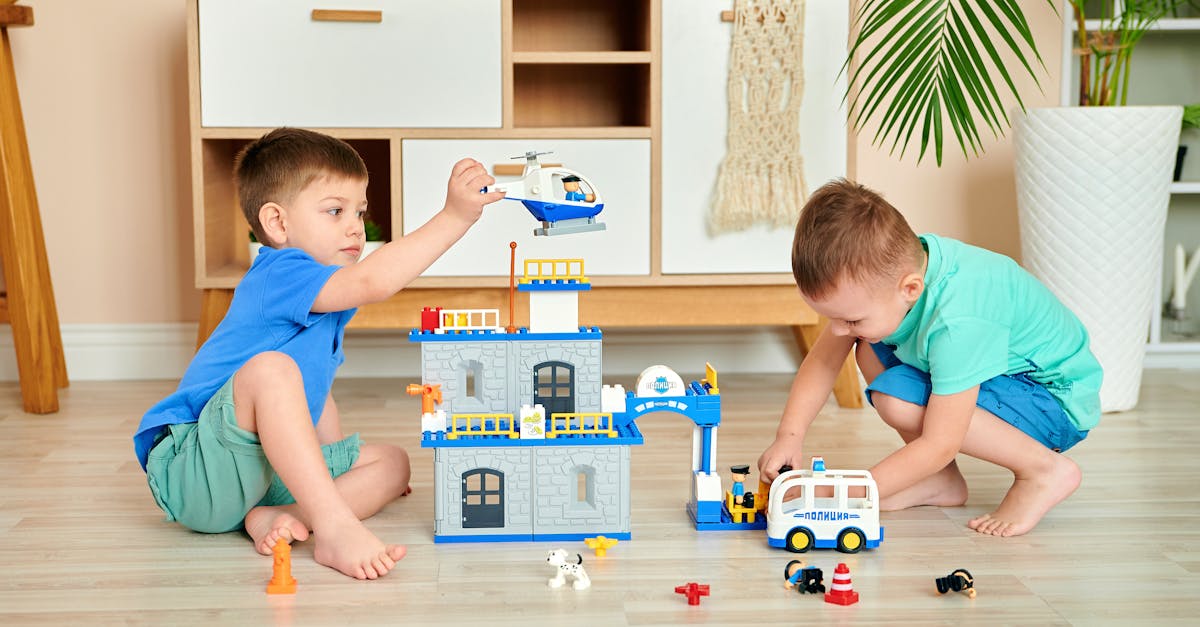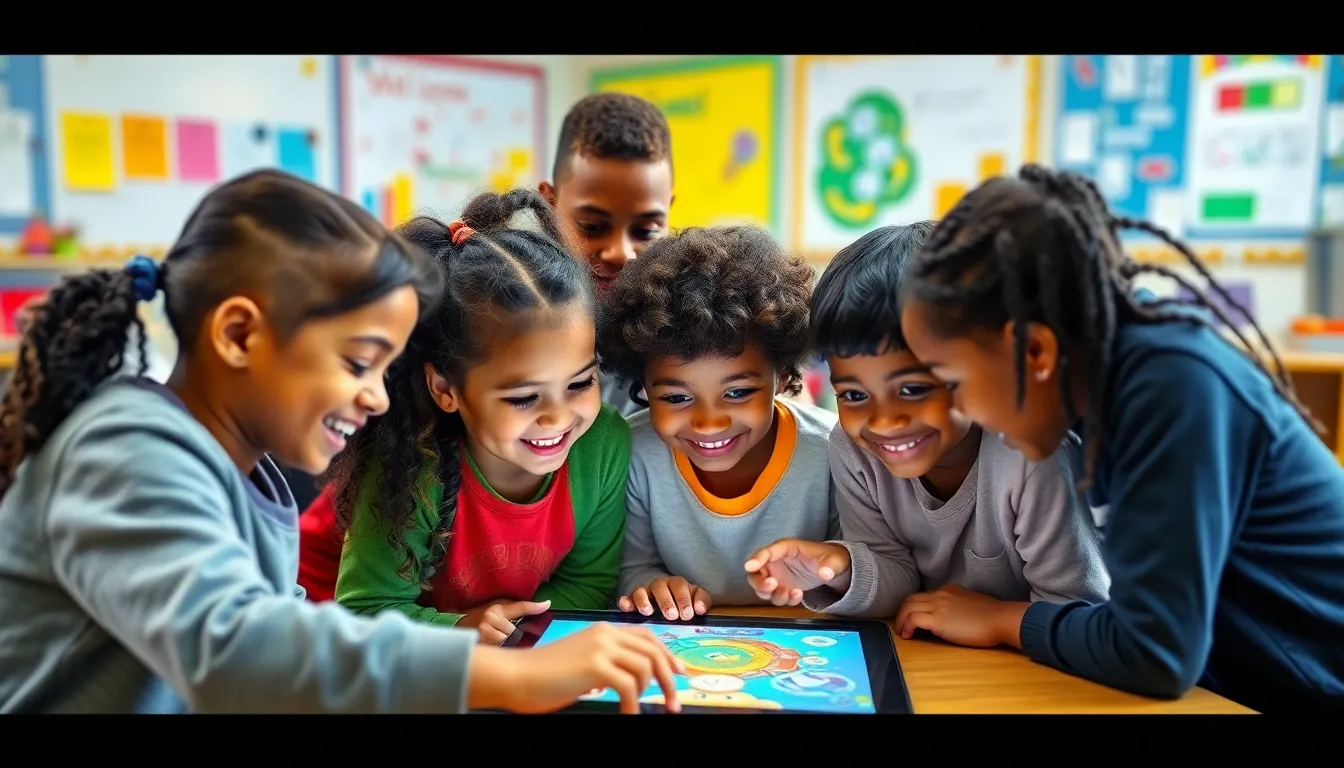Table of Contents
ToggleIn the world of parenting, few terms spark as much debate as “helicopter parenting.” It’s like the ultimate buzzword for overzealous moms and dads who hover just a little too close. But what if that hovering is actually a sign of love and concern? Critics might roll their eyes and label these parents as overprotective, but the truth is a bit more nuanced.
Understanding Helicopter Parenting
Helicopter parenting involves parents who maintain a high level of involvement in their children’s lives. This parenting style often elicits varied opinions regarding its impact on child development.
Definition and Origins
Helicopter parenting first emerged in the 1960s and 1970s, gaining traction in the early 2000s. It describes parents who constantly monitor and control their children’s activities. Research shows that this approach often stems from heightened societal fears about safety and academic success. Additionally, parents may feel pressure to ensure their children excel in competitive environments. Such concerns lead to controlling behavior that can hinder children’s independence.
Characteristics of Helicopter Parents
Helicopter parents display several key traits. They frequently intervene in their children’s problems, offering solutions instead of allowing them to solve issues independently. In many cases, these parents maintain constant communication through text messages or phone calls. They often prioritize their children’s academic performance, pushing them toward specific achievements. Furthermore, they may struggle to allow children to take risks, believing this prevents potential harm or failure. Overall, these characteristics illustrate an intense parenting style focused on protection and involvement.
The Criticism Surrounding Helicopter Parenting
Helicopter parenting attracts significant criticism for its implications on child development. Experts emphasize the prolonged intervention of parents, which can stifle children’s ability to develop independence.
Impact on Children’s Independence
Children raised by helicopter parents often struggle to make their own decisions. Excessive guidance limits their opportunities to learn from mistakes. They frequently rely on their parents for problem-solving instead of facing challenges independently. Moreover, a lack of confidence may develop when children are not allowed to explore and take risks on their own. Educational studies support this claim, indicating that autonomy is crucial for fostering resilience and self-efficacy in children. Parents’ involvement can negatively impact these essential skills.
Emotional and Psychological Effects
Helicopter parenting may contribute to heightened anxiety and stress levels in children. Children often feel immense pressure to meet parental expectations, leading to a fear of failure. Additionally, this constant oversight can impair their ability to cope with everyday challenges. Research highlights that those with helicopter parents report lower self-esteem compared to peers with more autonomy. Emotional dependency can also become a significant concern as children may struggle with relationships outside the family unit. When parents excessively intervene, it can ultimately limit emotional growth and resilience.
Addressing Helicopter Parenting Criticism
Addressing helicopter parenting criticism requires a nuanced understanding of the underlying concerns. Critics often highlight the emotional and psychological effects on children who experience this intensive style of parenting.
Validating Concerns and Fears
Concerns about safety and academic achievement motivate many parents to engage in helicopter parenting. Research shows that these fears may stem from increased societal pressures. Parents often feel that by closely monitoring their children, they can mitigate risks and enhance success. Validating these fears is essential, as they arise from genuine love and a desire to protect. Acknowledging these motivations can foster a constructive dialogue between parents and critics. Open discussions may lead to solutions that support children while respecting parental instincts.
Finding a Balance in Parenting Styles
Finding a balance between concern and independence proves crucial for effective parenting. Parents can benefit from embracing flexible parenting methods that promote autonomy while providing guidance. Encouraging children to face challenges independently helps build resilience and self-confidence. Implementing strategies like setting clear expectations also aids in maintaining parental involvement without overstepping boundaries. By allowing children to navigate risks, parents nurture healthier development. Exploring various parenting styles can contribute to a supportive environment where children thrive both emotionally and socially.
Effective Communication with Critics
Effective communication is key when addressing criticisms of helicopter parenting. Engaging openly with critics fosters understanding and promotes healthy discussions.
Listening to Different Perspectives
Listening to diverse viewpoints allows parents to gain insight into the criticisms they face. Listening invites constructive feedback and widens the understanding of parenting impacts. Recognizing differing opinions provides clarity on how helicopter parenting influences child development. Acceptance of valid concerns demonstrates a willingness to adapt. Respectful conversations contribute to a more informed perspective on balancing protection and independence.
Strategies for Constructive Dialogue
Establishing a constructive dialogue involves intentional strategies. Encourage open-ended questions to facilitate deeper conversations. Speak calmly while expressing viewpoints, ensuring clarity and respect. Emphasizing common goals, such as children’s well-being, creates a collaborative atmosphere. Share personal experiences alongside research findings to support arguments. Agreeing to disagree allows for continued dialogue without animosity. Maintaining a focus on empathy helps bridge gaps between differing beliefs, fostering an environment conducive to understanding.
Addressing helicopter parenting criticism requires a balanced approach that acknowledges both the motivations behind this style and its potential drawbacks. Parents must strive to understand the fine line between guidance and overreach. Open communication with critics can foster a more supportive environment for children’s development.
By engaging in constructive dialogue and embracing diverse perspectives, parents can better navigate their roles. This encourages children to build resilience and independence while still feeling supported. Ultimately, a flexible parenting style that promotes autonomy will benefit children in the long run, helping them thrive in an ever-changing world.







